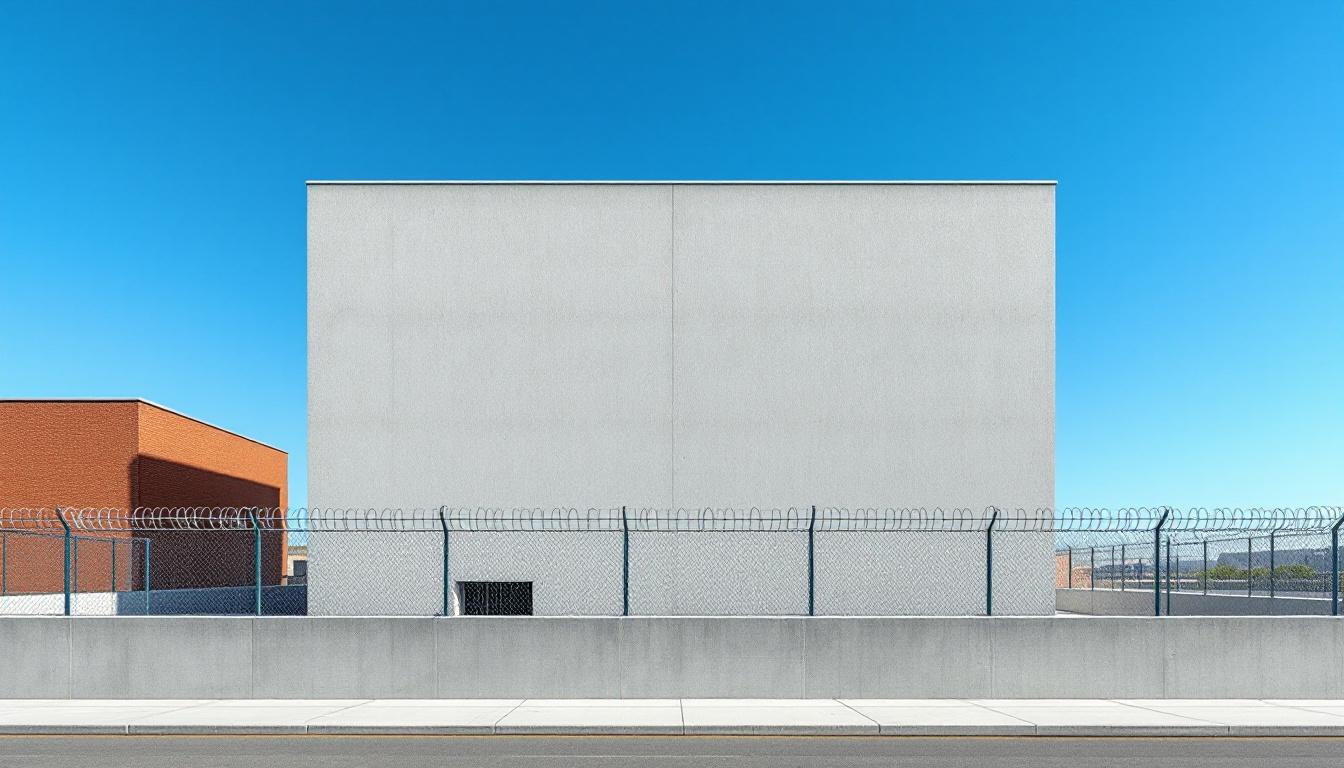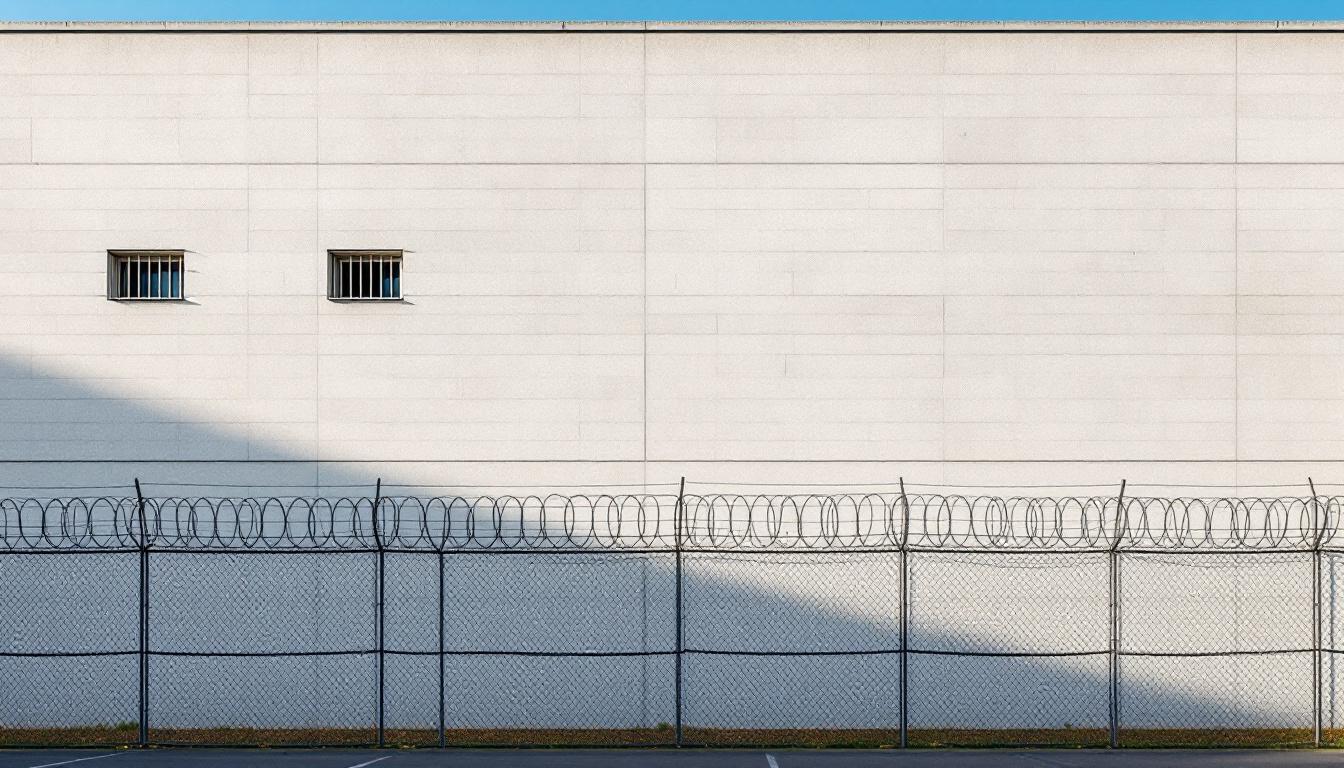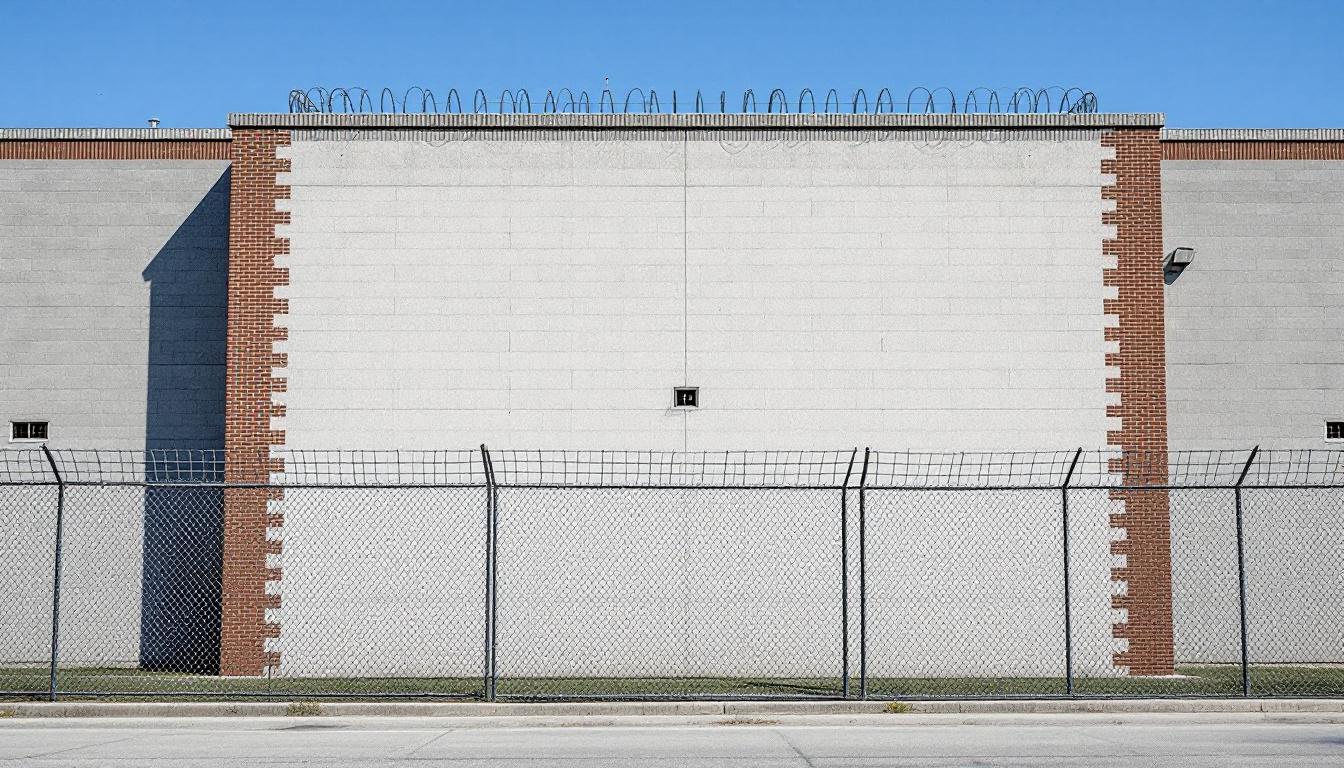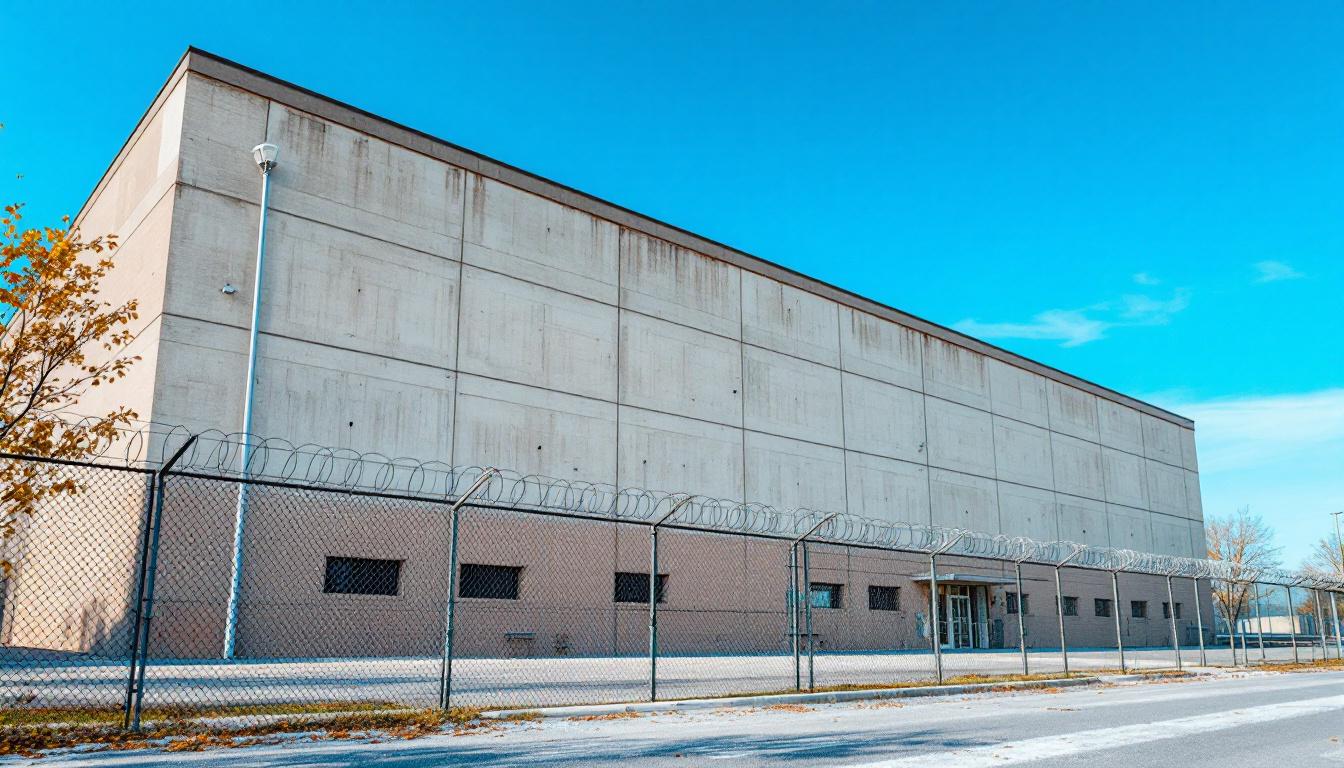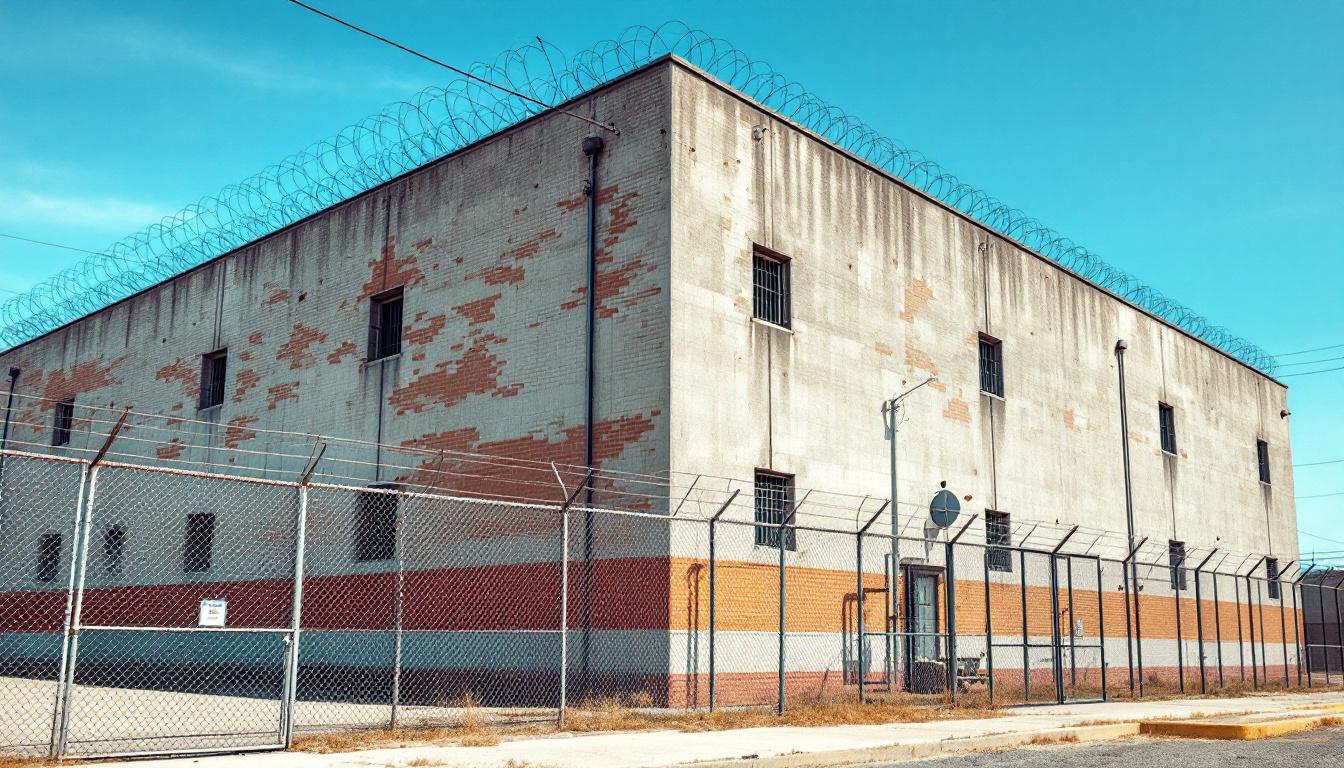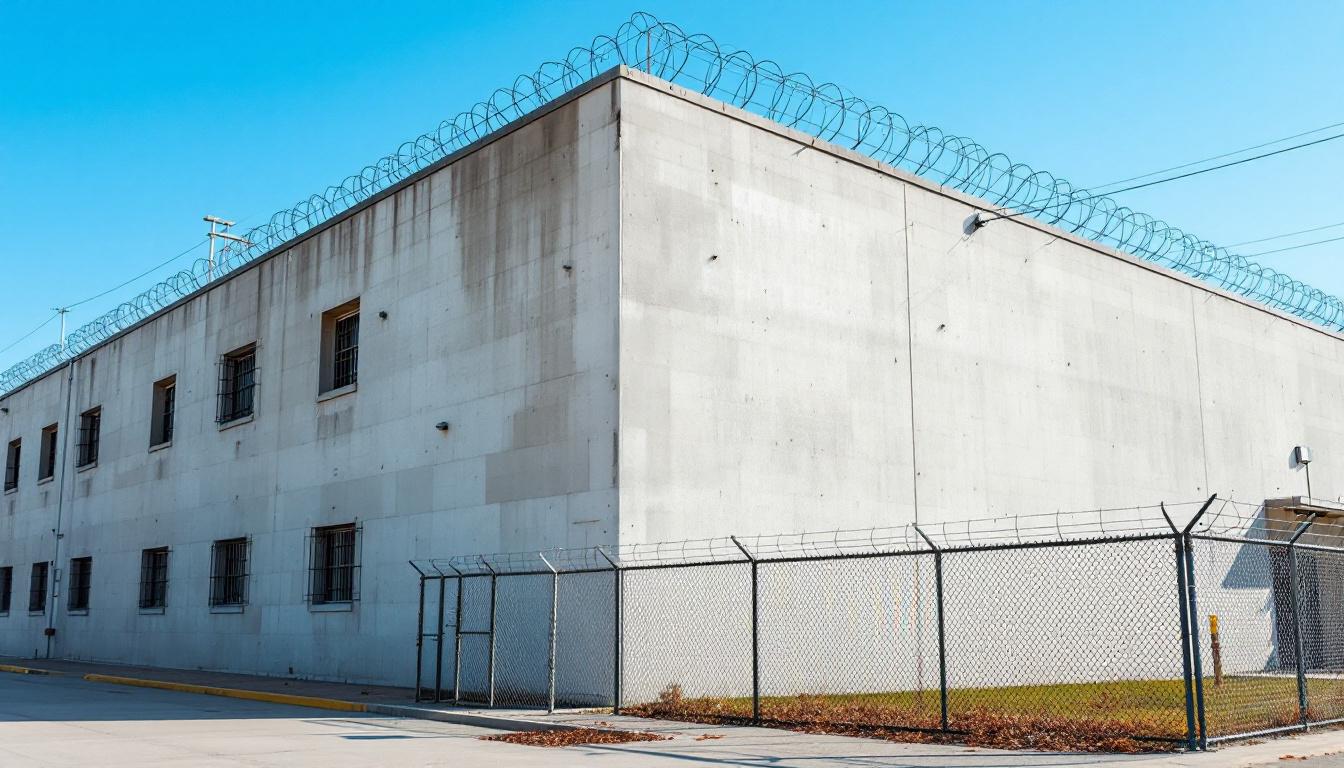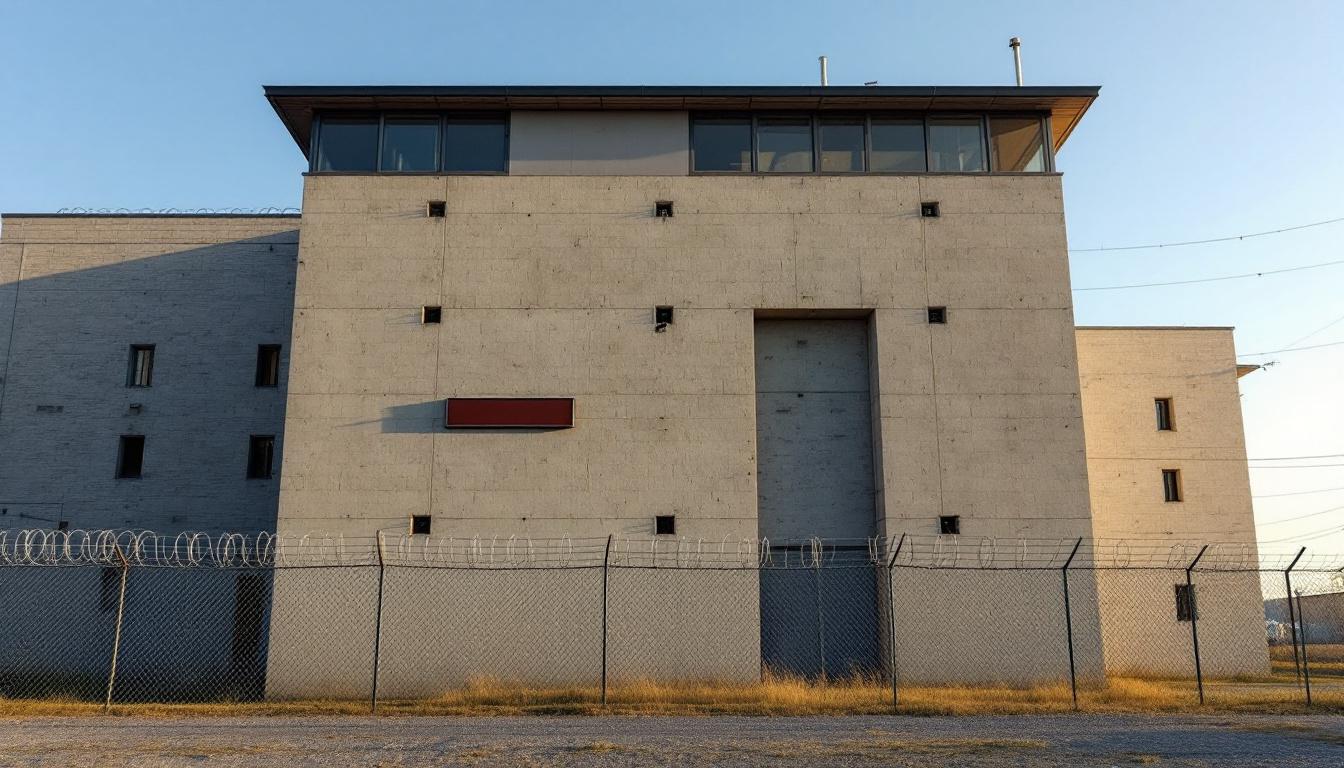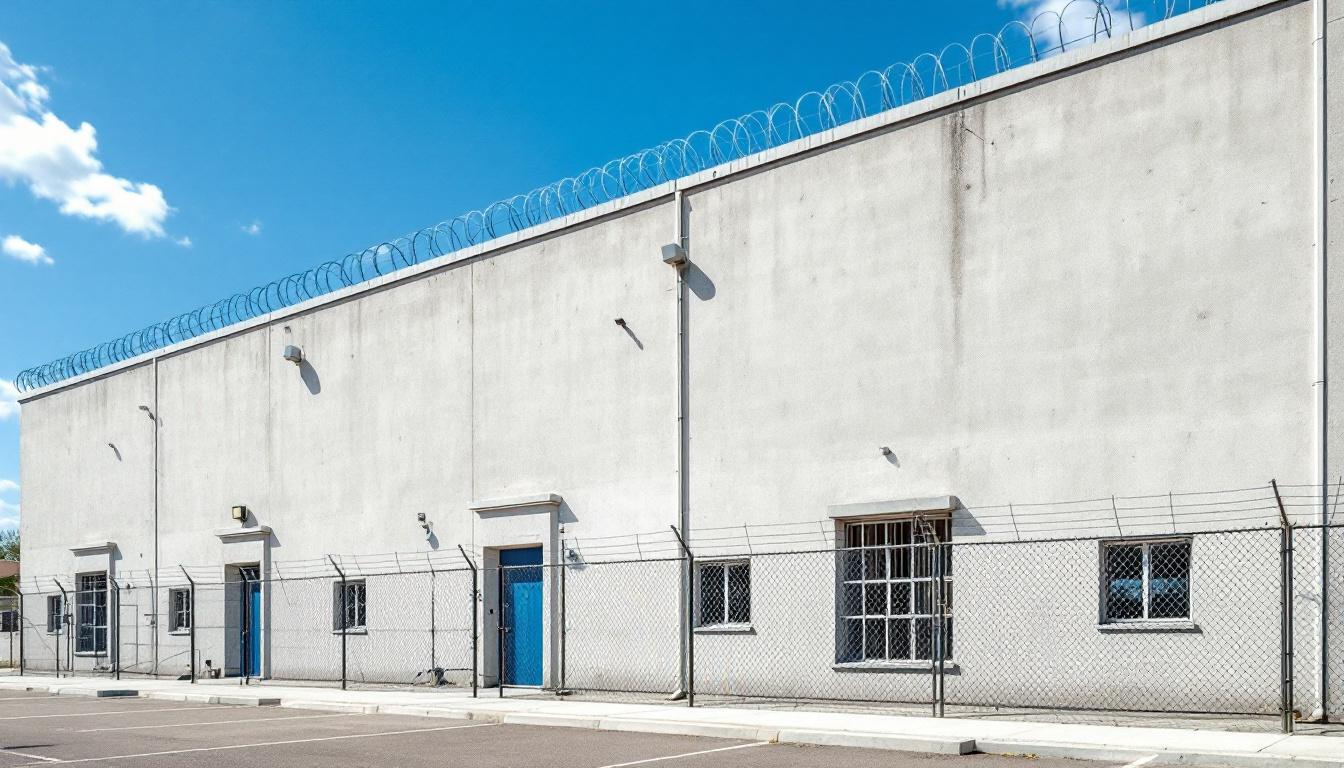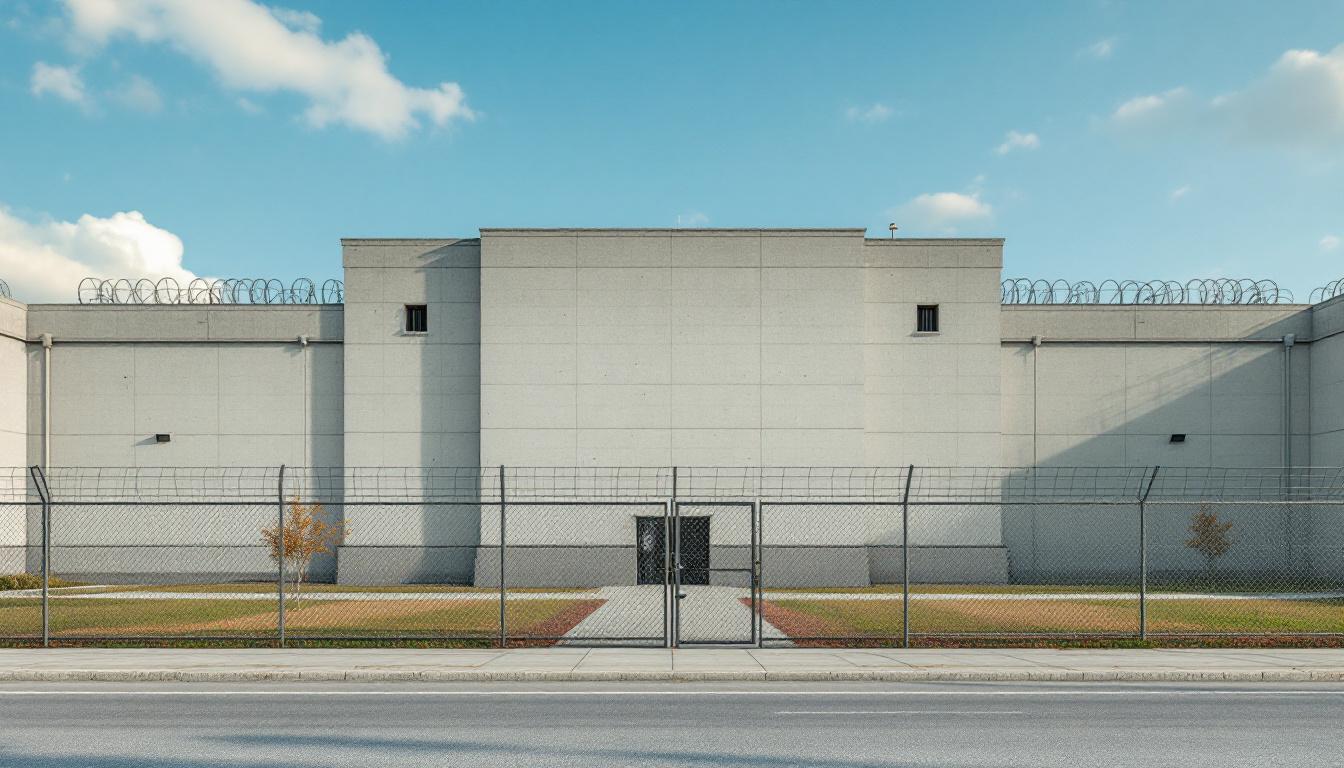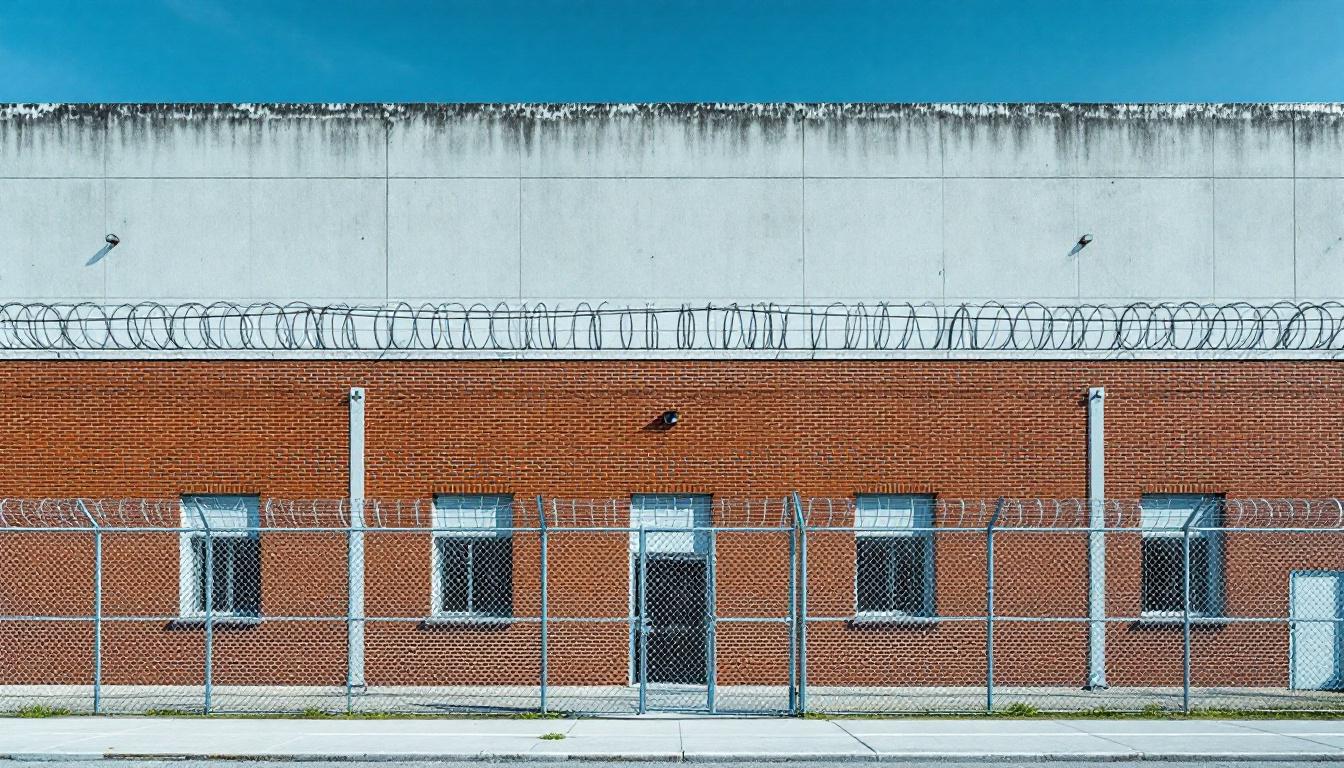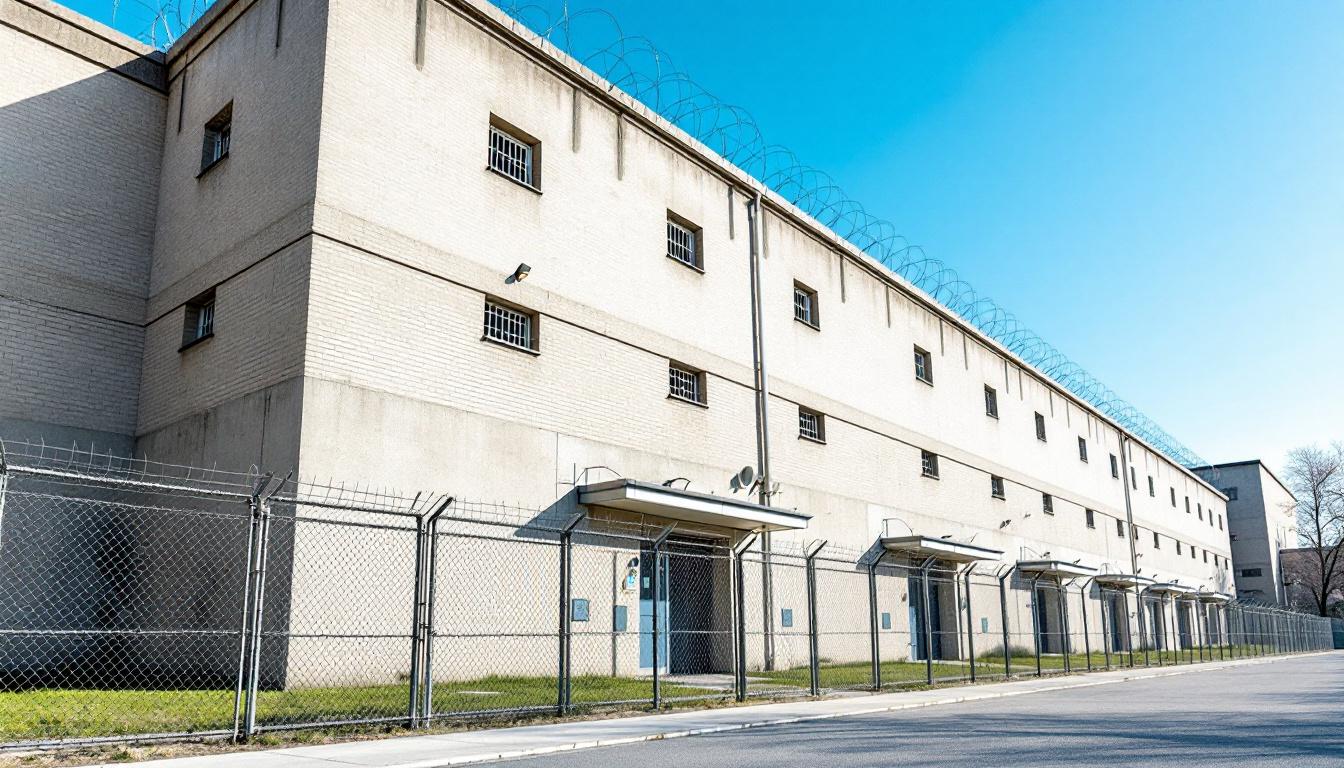
Quick Navigation
How to contact an inmate at Prince George's Community College - Main Campus
This comprehensive guide will walk you through how to connect with an inmate at Prince George's Community College - Main Campus. Follow the steps below to find an inmate and send letters and photos:
- Search for the inmate using our search tool below
- Create your account or log in to Penmate
- Write your message (up to 6,000 characters)
- Send instantly - inmates receive printed copies daily
Find an Inmate
Search for an inmate to start communicating today
Tip: You can search by first name, last name, or inmate ID number
To contact a person at Prince George's Community College - Main Campus start by searching for the person on the official facility website. Perform a search by following these steps:
- Step 1: Enter their first name and last name into the search form and click "Search"
- Step 2: Locate their inmate record
- Step 3: Write down their Inmate ID and any housing information provided
Important! Be sure to enter the person's full name. Nicknames should not be used.
How to Send Messages to Inmates

You can use your phone or computer to send emails, letters, and photos to an inmate. Messages are sent electronically to inmate tablets or kiosks at the facility. If you would like to send a message, start by searching for an inmate at Prince George's Community College - Main Campus.
Sending Photos and Postcards

A great way to send love and support to a loved one at Prince George's Community College - Main Campus is to send photos and postcards. It only takes a few minutes to send photos from your phone and it makes a huge difference. You can also mail postcards with words of support and inspiration, or design your own postcard for special moments like birthdays and holidays.
Important! Be sure not to send any explicit photos or they may not be approved by the facility. You can also use a photo printing app like Penmate to make sure your photos are printed at the correct size (4x6 or 3x5) and are mailed according to the rules and regulations of Prince George's Community College - Main Campus.
Frequently asked questions about Prince George's Community College - Main Campus
-
How long does it take to deliver a message?
If you're sending an email message your letter is usually delivered within 24-48 hours. For messages sent via mail you should expect delivery within 3-7 days. All messages will need be approved by Prince George's Community College - Main Campus.
-
How much does it cost to send a message to Prince George's Community College - Main Campus?
You can send a message free using your phone or mail a message via USPS for the price of a $0.60 stamp and envelope. You can also purchase credits or e-stamps from services starting at $1.99.
-
What services can I use to contact an inmate at Prince George's Community College - Main Campus?
Penmate
You can use Penmate to send letters and photos to an inmate from your phone. It's an easy way to stay in touch during your loved one's incarceration. Use the inmate locator to find an inmate's location and contact information, then you can send messages within a few minutes.
Securus messaging
Securus may be another option for communicating with an inmate at Prince George's Community College - Main Campus. You can create a friends and family account and purchase credits to send messages. All messages will be reviewed and must be approved by the facility.
JPay
Some county jails and state prisons may support sending messages with JPay. You must register an account with the system, find your loved one, and purchase stamps to send messages. For some locations you can also attach photos.
Smart Jail Mail
You may also check if Smart Jail Mail is available at Prince George's Community College - Main Campus. Smart Jail Mail is operated by Smart Communications and has contracted with some state and county jails. After purchasing credits, your messages and photos are sent to the facility, printed out, and then handed out to your loved one.
-
What is the mailing address of Prince George's Community College - Main Campus?
Mailing address:
Prince George's Community College - Main Campus
301 Largo Rd
Largo, MD 20774
Phone: (301) 546-7422Business hours:
- Monday: 8:00 AM – 4:30 PM
- Tuesday: 8:00 AM – 4:30 PM
- Wednesday: 8:00 AM – 4:30 PM
- Thursday: 8:00 AM – 4:30 PM
- Friday: 8:00 AM – 4:30 PM
- Saturday: Closed
- Sunday: Closed
-
What are the visiting hours at Prince George's Community College - Main Campus?
Visiting hours at Prince George's Community College - Main Campus vary by housing unit and security level. Generally, visits are scheduled on weekends and holidays, with some facilities offering weekday visits. Contact the facility directly at (301) 546-7422 or check their website for the current visiting schedule. Visits typically last 30-60 minutes and must be scheduled in advance.
-
What items are prohibited when sending mail to Prince George's Community College - Main Campus?
Prohibited items typically include: cash, personal checks, stamps, stickers, glitter, glue, tape, staples, paperclips, polaroid photos, musical or blank greeting cards, hardcover books, magazines with staples, and any items containing metal or electronics. Only send letters on plain white paper with blue or black ink. Photos must be printed on regular photo paper (no Polaroids). Always check with Prince George's Community College - Main Campus for their specific mail policies.
-
How do I send money to an inmate at Prince George's Community College - Main Campus?
You can send money to an inmate at Prince George's Community College - Main Campus through several methods: 1) Online using JPay, Access Corrections, or the facility's approved vendor, 2) Money orders mailed directly to the facility with the inmate's name and ID number, 3) Kiosks located in the facility lobby, or 4) Over the phone using a credit or debit card. Fees vary by method, typically ranging from $2.95 to $11.95 per transaction.
-
Can I schedule a video visit with an inmate at Prince George's Community College - Main Campus?
Many facilities now offer video visitation as an alternative to in-person visits. At Prince George's Community College - Main Campus, video visits may be available through services like Penmate, Securus Video Connect, GTL, or ICSolutions. Video visits typically cost $10-20 for 20-30 minutes and must be scheduled in advance. You'll need a computer or smartphone with a camera and reliable internet connection. Contact the facility for their specific video visitation policies and approved vendors.
-
What identification do I need to visit an inmate at Prince George's Community College - Main Campus?
All visitors must present valid government-issued photo identification such as a driver's license, state ID, passport, or military ID. Minors must be accompanied by a parent or legal guardian who can provide the minor's birth certificate. Some facilities require visitors to be on the inmate's approved visitation list, which may require a background check. Contact Prince George's Community College - Main Campus for specific ID requirements and visitor approval procedures.
-
How can I find out an inmate's release date?
To find an inmate's release date at Prince George's Community College - Main Campus, you can: 1) Use the online inmate search tool if available, 2) Call the facility's records department, 3) Contact the inmate's case manager or counselor, or 4) Have the inmate provide this information during a call or visit. For privacy reasons, some facilities only release this information to immediate family members.
Facility Overview
Contact Information
Prince George's Community College - Main Campus301 Largo Rd
Largo, MD 20774
Phone: (301) 546-7422
Official Website
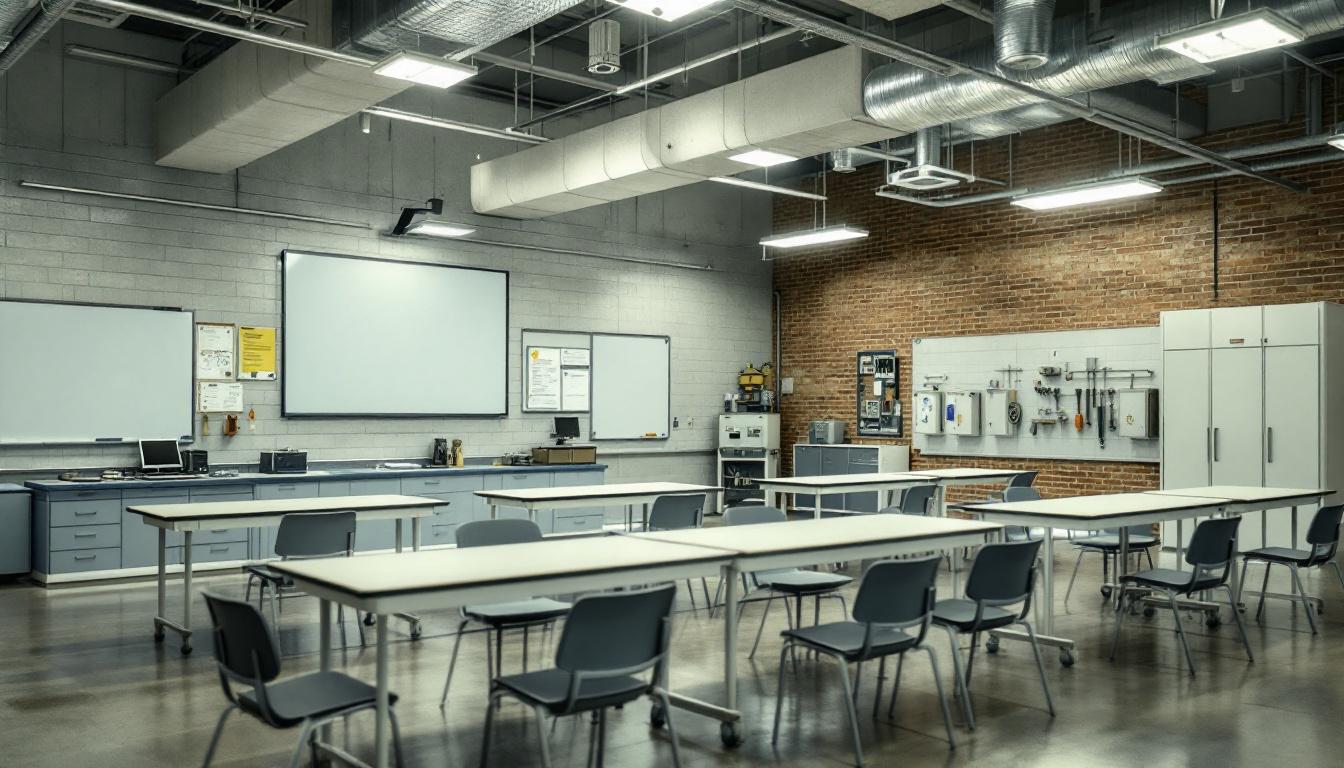
About Prince George's Community College - Main Campus
Comprehensive rehabilitation programming and essential support services form the cornerstone of operations at Prince George's County CC, MD, where individuals services encompass educational opportunities, vocational training, and behavioral health resources designed to promote successful community reintegration. This MD correctional facility typically offers a range of programs that may include literacy education, substance abuse counseling, and job readiness preparation, all structured to align with Maryland's broader correctional objectives of reducing recidivism and supporting positive behavioral change.
Strategically positioned in Upper Marlboro, the facility serves a vital role within Prince George's County's criminal justice infrastructure, often functioning as a key component in the state's comprehensive approach to corrections and rehabilitation. The correctional facility's location in this established Maryland community provides accessibility for family visits and community-based programming partnerships that may enhance reentry preparation. Upper Marlboro's proximity to both urban and suburban areas typically allows for diverse programming opportunities that can address the varied backgrounds and needs of the incarcerated population.
Within Maryland's correctional system framework, the facility generally operates with a focus on balancing security requirements with rehabilitation goals, often emphasizing programs that prepare individuals for successful transition back into their communities. The institution may typically coordinate with state agencies and local organizations to provide services such as mental health support, educational advancement, and pre-release planning, all designed to support the state's commitment to evidence-based correctional practices and community safety through effective rehabilitation programming.
Programs & Services
The multifaceted approach to individual development at Prince George's County Correctional Center reflects a commitment to addressing diverse needs through comprehensive programming. Rather than offering isolated interventions, the facility typically integrates educational, vocational, and therapeutic opportunities that work synergistically to support personal growth and successful community reintegration. This holistic framework recognizes that meaningful change often requires multiple pathways for skill development and self-improvement.
Educational advancement forms a cornerstone of available opportunities, with programs that may include basic literacy instruction, GED preparation, and continuing education courses designed to expand academic foundations. Tutoring services often provide individualized support to help participants overcome learning challenges and achieve their educational goals. Also available are vocational training opportunities that typically focus on developing marketable skills, with specialized instruction in trades such as welding that can lead to employment prospects upon release. These hands-on programs often emphasize both technical proficiency and workplace readiness skills.
Therapeutic services complement the educational and vocational components by addressing underlying issues that may impact successful reintegration. These support opportunities typically include counseling services, substance abuse treatment, and behavioral intervention programs that help individuals develop coping strategies and address personal challenges. The integration of these therapeutic elements with skill-building programs creates a comprehensive approach that recognizes the complex factors influencing individual success and community safety.
Daily Life & Visitation
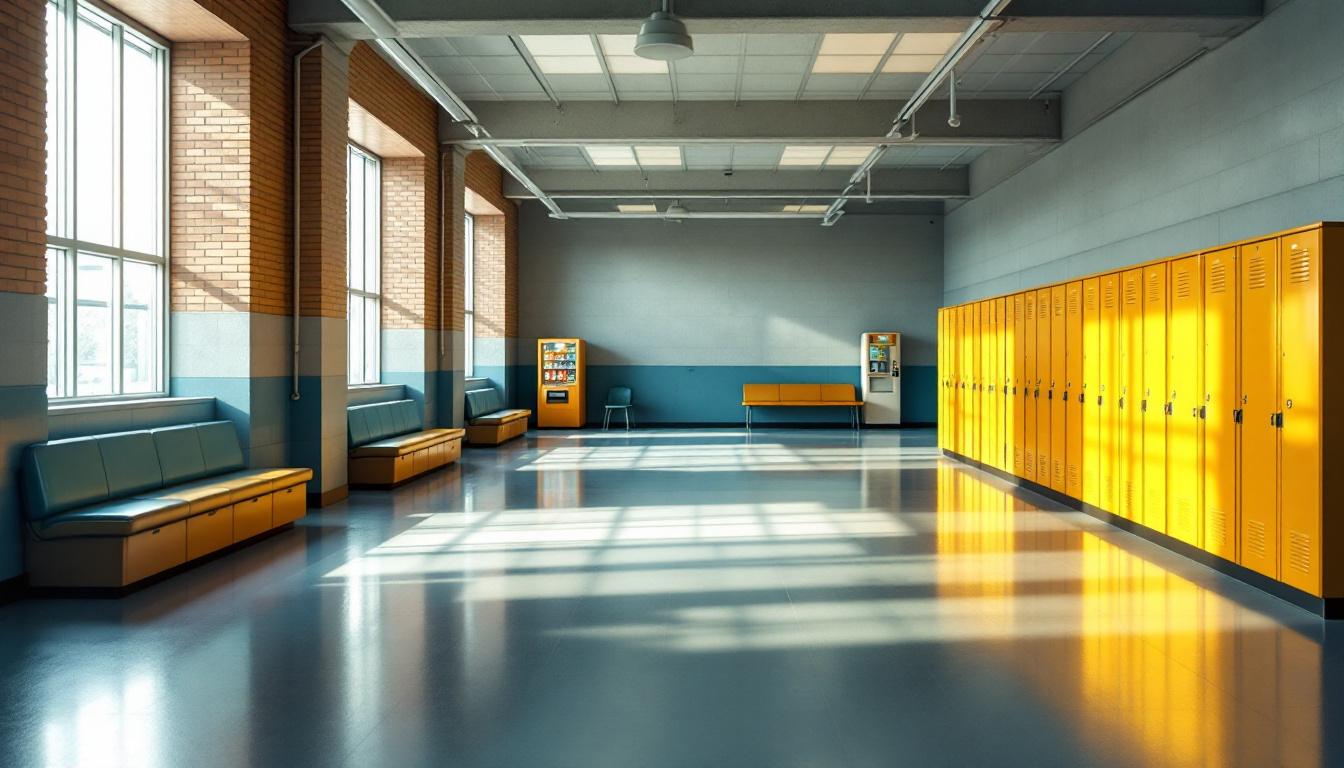
The steady rhythm of institutional bells and announcements now punctuates each day for individuals housed at Prince George's County Correctional Center, creating a structured framework that governs nearly every aspect of their routine. Residents typically begin their mornings with scheduled count times, followed by meal service in designated dining areas where they receive three meals daily prepared by facility kitchen staff. Throughout the day, individuals regularly participate in various activities that may include educational programming, work assignments within the facility, and recreational periods that offer opportunities for physical exercise and social interaction.
Living accommodations at the facility generally consist of housing units designed to accommodate multiple individuals, with each person typically assigned a specific bed and limited storage space for approved personal belongings. The dormitory-style or cell-based housing arrangements vary depending on classification levels and security requirements, with individuals having access to basic amenities such as restroom facilities, common areas for television viewing, and designated spaces for personal hygiene. Also, residents can typically purchase additional items through the commissary system, which allows them to supplement basic provisions with approved food items, hygiene products, and other permitted goods using funds from their institutional accounts.
However, daily life extends beyond the basic routine through structured programming schedules that may include vocational training, substance abuse counseling, religious services, and library access, all designed to offer meaningful ways to spend time while incarcerated. Visitation opportunities typically allow individuals to maintain connections with family members and friends through scheduled in-person visits, phone calls, and correspondence, though these communications generally operate under specific guidelines and monitoring procedures. The facility also usually provides work assignments that might involve kitchen duties, maintenance tasks, or administrative support roles, giving individuals the chance to earn small wages while contributing to facility operations and developing job skills for eventual reintegration into the community.
Ready to Connect?
Start communicating with your loved one today
Search for an Inmate
